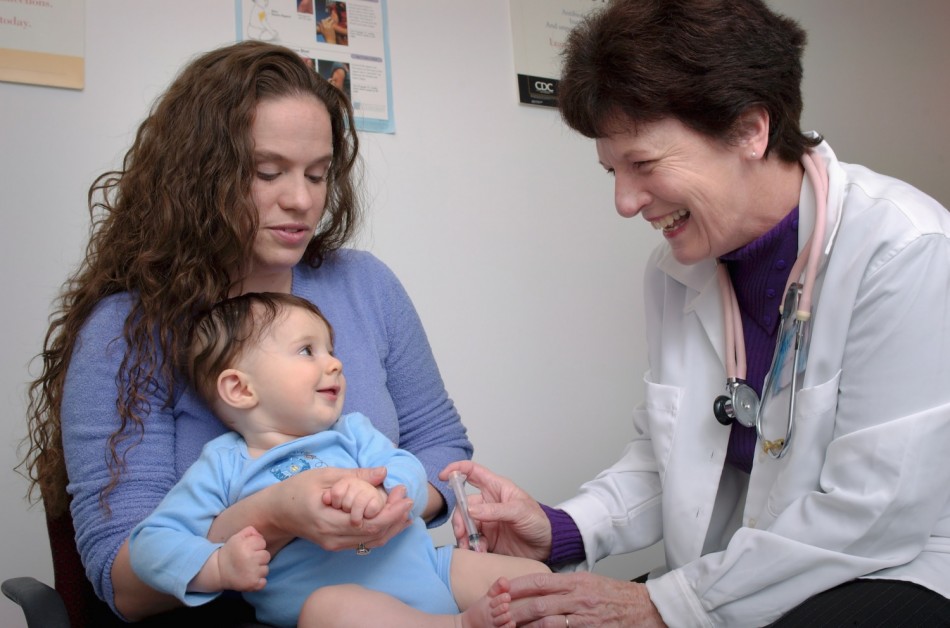A Guide For New Parents On Medical Procedures

As a new parent, navigating the world of medical procedures and treatments can be overwhelming. From vaccinations to emergency care, it's important to understand your child's needs and familiarize yourself with common medical procedures.
In this guide, we'll provide an overview of the most common medical procedures for children, as well as tips on how to prepare for them. With the right knowledge, you can ensure your child receives the best care possible.
What Are The Most Common Medical Procedures For Babies And Children?
There are a variety of medical procedures that may be recommended for babies and children. Some of the most common include:
Immunizations
Immunizations can protect your child from serious illnesses by preventing them from contracting certain diseases. Depending on age, children will typically receive a combination of oral and injected vaccines.
It's important to keep track of your child's immunization schedule and ensure they receive all recommended vaccines.
Physical Examinations
To ensure your child's health and development are progressing as expected, it's important to bring them in for regular physical examinations. During these visits, your doctor will check your child's weight, height, and other vital signs. They may also ask questions about their sleep habits, eating patterns, and behaviour.
Lab Tests
Lab tests are used to diagnose illnesses and monitor your child's health. Depending on the condition, doctors may recommend blood tests, urine tests, or stool samples, and these can be used to identify infections or detect genetic disorders.
Emergency Care
Emergency care is essential for children who require immediate medical attention. If your child has a fever, difficulty breathing, or any other signs of illness or injury, seek emergency care right away.
X-rays
X-rays are used to take pictures of the body's internal organs and can help diagnose certain medical conditions.
Surgery
In some cases, surgery may be necessary if your child has a birth defect, if they need to have a foreign object removed from their body, or if they have an infection that requires surgical treatment. In these cases, it's important to discuss the risks and benefits of the procedure with your doctor.
How Can Parents Prepare For Medical Procedures?
No one likes to think about medical procedures, but being prepared can help make the experience less stressful. Here are a few tips to help you prepare for medical procedures:
Familiarize Yourself With The Procedure
One of the best ways to prepare for a medical procedure is to familiarize yourself with it. Talk to your doctor about the risks and benefits of the procedure, as well as what you can expect before, during, and after the procedure.
Create A Support Network
It's important to have a support network when facing medical procedures. Reach out to family, friends, or healthcare professionals who can provide emotional and/or physical support.
Be Prepared
Make sure you have all the necessary documents, such as insurance information and any forms that need to be filled out. It's also a good idea to bring a list of your child's current medications, allergies, and medical history.
Stay Positive
It's normal to feel anxious or scared during medical procedures, but try to stay positive and remember that the goal of the procedure is to improve your child's health.
Ask Questions
If you have any questions or concerns, don't hesitate to ask your doctor. They should be able to provide you with more information and help put your mind at ease. Don't be afraid to get a second opinion if you're not comfortable with the doctor's recommendations: remember that it's your child's health, and you have the right to make informed decisions.
Pack A Hospital Bag Of Essentials
It is always a good idea to prepare a bag with essentials for the day of the medical procedure. This could include snacks, drinks, entertainment items (books from this list, games, colouring books, etc.), and any other items that you or your child may need to make the experience more comfortable.
Not only will this help keep your child distracted and relaxed before the procedure, but it will also make sure that you have everything you need to make their stay as comfortable as possible, and will keep you from having to worry about forgetting something important.
Medical procedures can be a stressful experience for both children and parents, but with the right preparation and support, you can make sure your child is comfortable and that their health is in good hands.
Final Thoughts
Medical procedures can be a scary experience for both parents and children, but with the right preparation and support, you can make sure your child is comfortable and that their health is in good hands. Remember to talk to your doctor about the risks and benefits of the procedure, create a support network, be prepared with the necessary documents, stay positive, and ask questions if you have any concerns.
Though medical procedures can be difficult, the goal is always to improve your child's health, and with the right preparation and support, you can ensure that your child has a safe and successful experience.
© 2024 ParentHerald.com All rights reserved. Do not reproduce without permission.
* This is a contributed article and this content does not necessarily represent the views of parentherald.com
